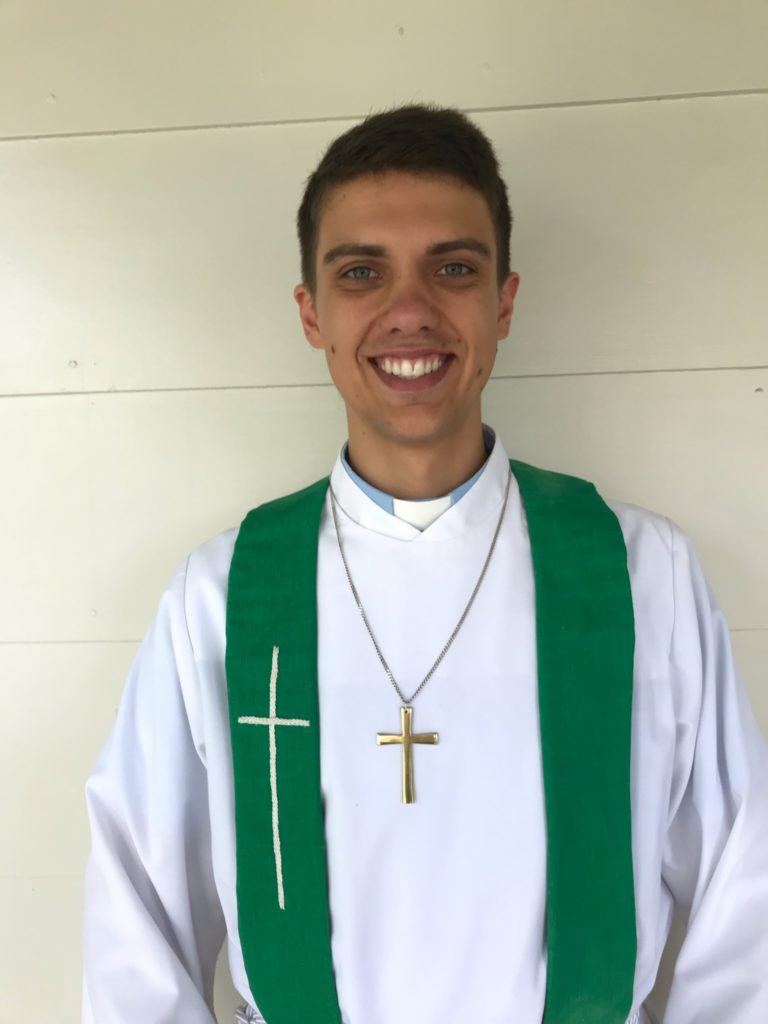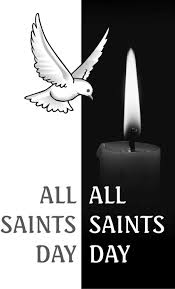Matthew 5:1-12
‘I feel so blessed’. It’s surprising how much you hear people say things like that these days.
that these days.
Some of you may know that in the online world of social media and all that people use the word ‘blessed’ quite a bit too, on Twitter and Instagram and Facebook there’s a tag which has been surprisingly popular: ‘hashtag blessed’.
The idea basically is that when something good happens to you and you feel thankful, it’s something people to add to their photo or news acknowledging that they feel some gratitude for their good fortune.
But what’s really interesting about the phenomenon from a Christian perspective is what people understand it means to be truly blessed.
Because as we turn to the words of Jesus, we discover that he has quite a different vision for what true blessedness is. For Jesus, true blessedness is not so much dependent on our circumstances in life, but on the action of God for us in those varied circumstances.
So let’s see how Jesus speaks of true blessedness in three steps today,
First that we are blessed in our helplessness,
Second that we are blessed in our helpfulness,
And third that we are blessed in Christ.
So first Jesus pronounces his blessings on us in his our helplessness. This has to be some of the most surprising teaching for us about what Jesus considers true blessedness. Notice what Jesus speaks blessing into here:
Those who are ‘poor in spirit’ or who are ‘spiritual beggars’.
Those who mourn or are sorrowful.
Those who are meek, lowly, little ones.
Those who hunger and thirst for righteousness,
Who lack something,
Those even who are ‘persecuted for righteousness sake’.
Now don’t we begin to see straight away how Jesus has a very different vision for true blessedness in life. Let me tell you, you’re not going to go on the internet and find too many people posting pictures of Christian churches being burnt down and pastors being arrested and put in jail, ‘Hashtag blessed’.
And yet blessed are you when people revile you and persecute you and utter all kinds of evil against you. How about ‘blessed are those who mourn, who grieve, who are sorrowful’?
Here we are celebrating All Saints’ Day. Maybe some of us in this room have had loved ones die in the past year and mourn for them. Others might still carry the grief from the past when you lost someone dear to you. Still others may experience mourning and sorrow over other forms of loss in life. We don’t normally think of these painful circumstances in life as being states of blessedness do we?
Yet Jesus does. There is blessing in helplessness.
And here’s the really important point:
It’s not blessed are the poor in spirit, FULL STOP.
It’s not blessed are those who mourn, FULL STOP.
It’s not blessed are those who are persecuted, FULL STOP.
In each case the blessing is not because of the circumstances, but the blessing is because in the circumstances God is at work, God is doing something, giving something, bringing something, either now or in the future.
We are blessed because of what God can and will do for us in our helplessness.
We can miss this basic point because the second half of each of these beatitudes is in the passive voice: ‘they will be comforted’, and so on. And so we ask, by who? Who’s doing the action here? When we hear these passives in the Bible, God is the one doing the action.
Blessed are those who hunger and thirst for righteousness—for God will fill them with that righteousness.
Blessed are those who mourn, because the Lord your God will comfort them.
Pastors conduct quite a few funerals. One thing they observe around funerals, is that it can be a tremendous time for families and friends to be drawn together. Not always, for funerals can be difficult times in family life too when there’s significant conflict. But often, as one of our funeral prayers say, people are drawn together in their sorrow. They comfort each other, and they receive comfort. It can be quite a wonderful thing to witness.
Now we don’t want to have to go through the grief and sorrow, but even at this human level perhaps we get a glimpse of the blessing of receiving comfort from another in the midst of mourning.
Jesus is saying is that true blessedness can be found even in mourning and sorrow, because God himself – Father, Son and Holy Spirit – will personally comfort us. Remember one of the names for the Holy Spirit is the comforter. That theme came up in our Revelation reading as well, ‘God will wipe away every tear from their eye’. This is a promise of the closeness of God to bring comfort.
So Jesus blesses us in our helplessness.
But secondly, Jesus blesses us in our help-ful-ness. We notice that there seems to be a movement in the list of the beatitudes from situations where people are lacking something – poor in spirit, mourning, meek, hungry and thirsty – to the next pronouncements of blessing where people are doing and being something.
‘Blessed are the merciful, for their will receive mercy.
Blessed are the pure in heart, for they will see God.
Blessed are the peacemakers, for they will be called children of God.’
There’s an image that one writer uses in this movement of the beatitudes which might be helpful.
“Start by imagining a person down on their knees, in the posture of a beggar. This is where it begins, the poor in the spirit, the spiritual beggar, the one who acknowledges they have nothing to give God, but everything to receive.
What does God do?
He blesses you,
He gives extravagantly to you,
He fills you.
And then he lifts you from your knees and puts you on your feet. So now you’re on your feet, you can do something, you can be active. You can pass on what you’ve received.
The poor in spirit have received mercy from God, now they can be merciful to others. And then as they show mercy to others, they receive even more mercy from God. It’s like a loop of mercy.
Jesus says there is true blessedness on our knees receiving from God in our helplessness, but there’s also true blessedness in being on our feet. Being help-ful. Showing mercy, living pure lives toward those around us, making peace in our relationships, our families, our communities, our church.
Again we can get a window onto this through human experience.
Isn’t this true at a very basic level: that if we aren’t feeling too good about life, and we simply go out and intentionally engage in an act of mercy for other person, that it’s almost guaranteed, we’ll feel better?
This is prominent in the literature on anxiety and depression. A part of the problem it seems is that we’re so easily curved in on ourselves, and there is a true blessedness in us being lifted out of ourselves to look to the needs of others. ‘Blessed are the merciful, for they will receive mercy’.
All Saints’ day is also a day for giving thanks for qualities like these we’ve seen in God’s people who have died. Here’s a quote from the Lutheran Confessions:
“It is also taught among us that saints should be kept in remembrance so that our faith may be strengthened when we see what grace they received and how they were sustained by faith. Moreover, their good works are to be an example for us, each of us in his own calling.
There’s a nice parallel here with the movement of the beatitudes.
As we remember those dear Christian people who have died, first we are to focus on the grace they received, we remember that they like all of us were by nature spiritual beggars who now live in the true blessedness before the face of God only by his grace.
But secondly, we can also give thanks for the good things they did in their life, and they can be an example to us. Perhaps a mother or grandfather or Christian friend who has died, was an especially merciful person, or strove for purity in their life, or endeavored to live a peacemaker.
Let’s learn from them and follow their example. There is true blessedness in our helpfulness.
Finally, true blessedness is in Christ.
As is so often the case in Jesus’ teaching, He finally is the one who embodies most fully his own words. We hear Jesus give this teaching in the beginning of the Sermon on the Mount, but then read the rest of the Gospel, and look for the one who actually does it.
Who is the truly merciful one, who is the one who is truly pure in heart, who is it that come to bring peace?” It’s the one who speaks these words, it’s Jesus Christ himself. As we read the rest of the Gospel and look for the one who is persecuted for righteousness sake, we’ll be drawn to Jesus, the one rejected, despised, handed over into the hands of sinful men.
Read the Gospel and look for the ultimate one who is poor in spirit, mourning, meek, hungry and thirsty. We will find him on the cross.
It’s finally only in Jesus Christ himself that we find true blessedness, because in his death and resurrection he opens up the kingdom of heaven for the poor in spirit, he defeats death so those who mourn can be comforted, he reveals the righteousness of God to those who are hungry and thirsty for it, he makes peace, and he gives it to you as a gift.
True blessedness is found in Christ.
Sometimes people ask, but is all this only for in the future, or is for this life now? According to Jesus it’s both. Six times he promises future blessings, ‘they will be…, they will be…’, But these are bracketed by two promises in the present tense, There is – right here, right now – yours is the kingdom of God.
True blessedness is both now, and not yet.
So what is it to be truly blessed? We all desire it from the core of our being, And Jesus points to the work of God as its ultimate source. There’s true blessedness in our helplessness, there’s true blessedness in our helpfulness, there’s ultimate blessing in Christ. May God grant it for Jesus’ sake. Amen.




